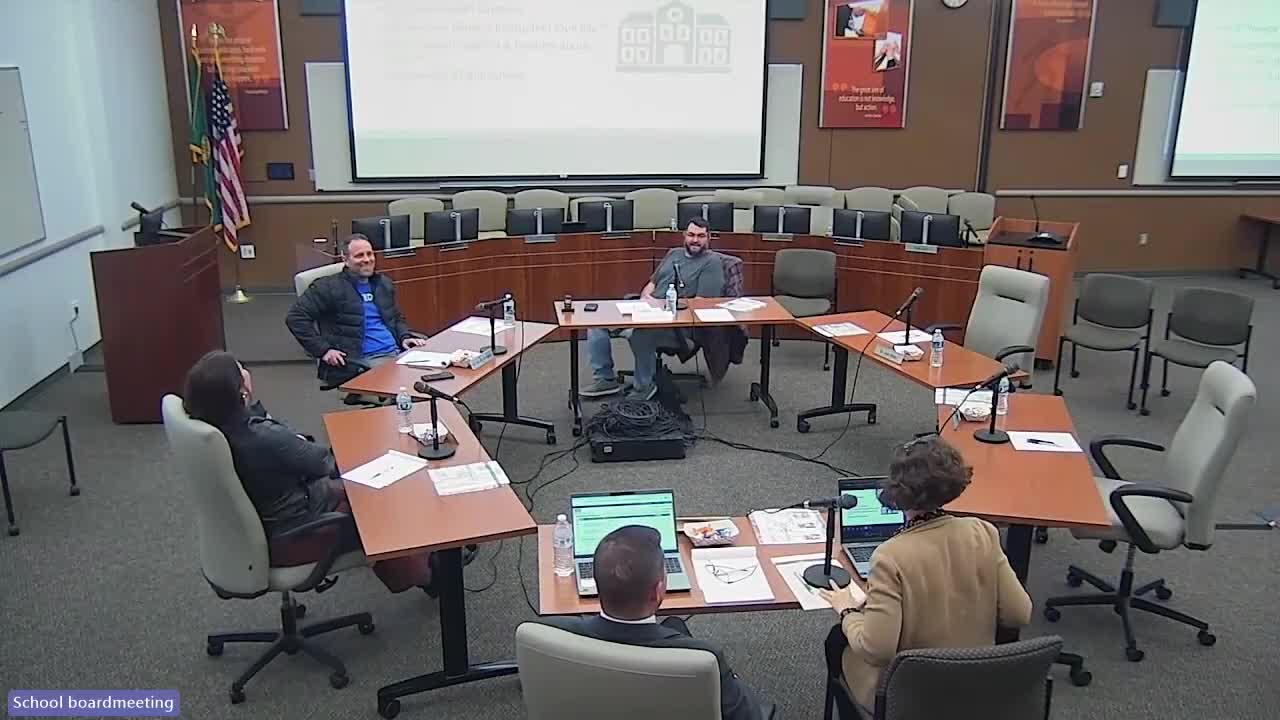Kennewick School District updates board on early rollout of K–5 CKLA curriculum
Get AI-powered insights, summaries, and transcripts
Subscribe
Summary
Kennewick School District staff offered a study-session update to the board on the early implementation of the newly adopted K–5 CKLA instructional materials, saying teachers are about eight weeks into the rollout and the district will present a progress report to the board in March.
Kennewick School District staff offered a study-session update to the board on the early implementation of the newly adopted K–5 CKLA instructional materials, saying teachers are about eight weeks into the rollout and the district will present a progress report to the board in March.
Alyssa, a district staff presenter, told the board the district adjusted its adoption cycle last year, reviewed multiple materials and "recommended to the board to adopt in March, CKLA," after finding the previous materials "were not rigorous enough" and lacked explicit instruction. The board approved the purchase and funding for CKLA, staff said.
The district described the sequence of supports put in place: launch meetings at every elementary school in May, initial teacher training in June, unit planning in July, refresher training in August and sustained coaching and resources through September and October. Staff said classrooms have received materials and trainers have been working with grade-level leaders and principals.
To illustrate how CKLA separates foundational skills from knowledge-building, Alyssa led board members through a hands-on "word sort" activity during the meeting. Board participants and district specialists discussed differences between skill-building lessons (phonics, decoding, dictation) and knowledge-building texts (content-rich readings designed to build vocabulary and background).
On classroom impact, staff shared photos from Kennewick classrooms and read teacher feedback. "I have a student who's in the fifth percentile in reading on STAR, excited about the middle ages," one teacher wrote, quoted by Alyssa, who said the student voluntarily wrote a full page about the topic. Staff presented those anecdotes as early evidence of increased engagement alongside plans to measure learning gains.
District leaders said they are collecting baseline data from fall STAR assessments and will compare winter and spring data and Smarter Balanced projections as part of ongoing monitoring. "I will be coming back to the board in March with a progress report," Alyssa said. Staff also described teacher surveys, monthly specialist meetings, principal walkthroughs and both scheduled and unannounced spot checks as mechanisms for quality control and coaching.
Board members asked about teacher workload during the heavy implementation phase. "We're only eight weeks into this for the teacher," a board member said; Alyssa acknowledged the early implementation load and described the work as "a dial not a switch," noting unit 2 felt easier for teachers than unit 1. Staff said they will continue supports and monitor whether the approach is producing sustained, systemwide gains.
Regarding expectations for measurable change, staff said system change typically requires multi-year work. "It takes a good three years to really, hone in and refine," Alyssa said, while adding the district will not wait three years to act if data show the approach is not producing sustainable results.
Next steps: staff will return to the board in March with a progress report using STAR and other measures, continue principal walkthroughs and coaching, and maintain regular teacher supports. The study session concluded without a formal board vote on additional actions.
